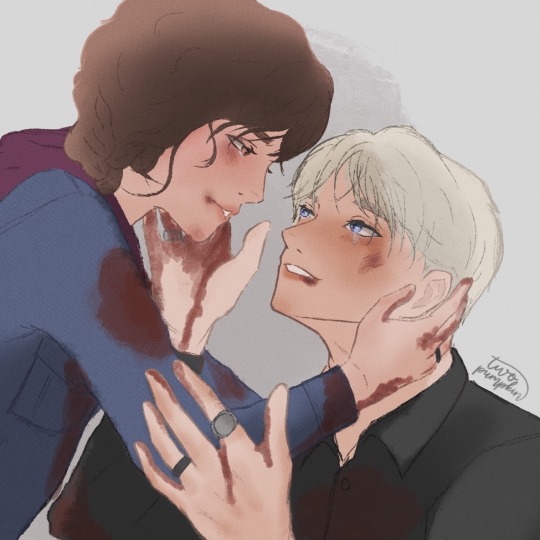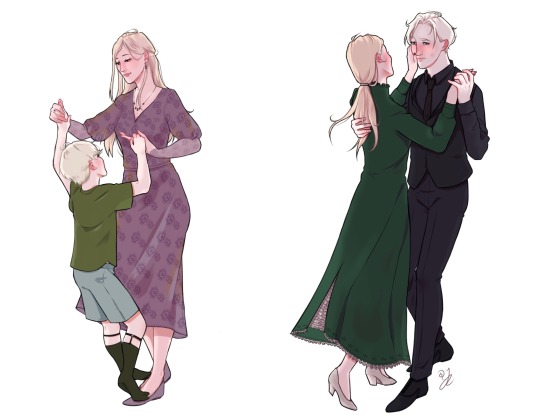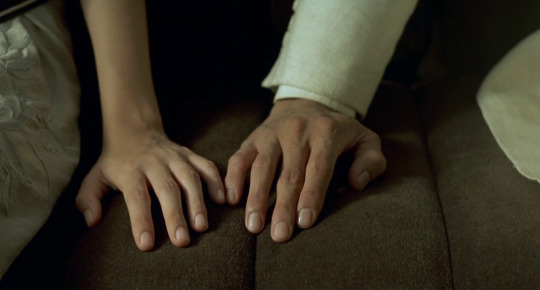Text
hey, look! it's my fic 😳
Beyond The Looking Glass
read it on the AO3 at https://ift.tt/2RdBHms
by solrising
Merlin, her eyes sparkling in the sun. They were golden.
He wouldn’t admit it until much (read as: years) later, but he thought she had the most beautiful eyes. They were a hidden treasure; one he intended to hoard for himself.
But then they introduced themselves and it all went downhill from there.
-*-
They say that eyes are the window to the soul. Draco Malfoy and Hermione Granger have been meeting eyes for years but somewhere along the way, they end up looking into each other’s souls.
Words: 4477, Chapters: 1/?, Language: English
Fandoms: Harry Potter - J. K. Rowling
Rating: Teen And Up Audiences
Warnings: No Archive Warnings Apply
Categories: F/M
Characters: Hermione Granger, Draco Malfoy, Harry Potter, Ron Weasley, Lucius Malfoy, Gregory Goyle, Vincent Crabbe
Relationships: Hermione Granger/Draco Malfoy
Additional Tags: Slow Burn, Enemies(?) to Lovers, Draco is an idiot, intense staring, POV Draco Malfoy, Harry Potter Epilogue What Epilogue | EWE, Not Canon Compliant, POV Hermione Granger, Pining Draco Malfoy, starts in first year, no plot just pining
read it on the AO3 at https://ift.tt/2RdBHms
11 notes
·
View notes
Text
Redemption and Degeneration Arcs: A Study.
Because I was awakened at five in the morning by a pouncing 65-pound dog I do not own that demanded a 2-mile walk, I got a neat idea which made me start thinking about redemption and degeneration arcs, so here’s a REALLY long post compositing my thoughts on the subject, mostly for personal use.
Redemption Arcs:
Obviously, the best redemption arc in media history is Zuko, so here’s what I learned about making good ones from him.
1. Constant Positive Influence. The roots of a redemption arc should be introduced as early as possible. In fact, the start of redemption is the introduction of a positive influence in the Redeemed’s life. Zuko had Iroh to help him make good decisions, and when Zuko didn’t have Iroh, his forward progress was halted.
2. Goodness Within. A positive influence isn’t there to plant goodness, it’s there to bring out the goodness already within a character, even if it’s hidden. We see Zuko’s goodness in the actions he does unprompted and alone, like when he rescues Aang as the Blue Spirit, or when he doesn’t rob a couple when he sees the woman is pregnant, and later saves an entire village.
3. Struggle. The change shouldn’t be overnight, but it shouldn’t be gradual either. Characters should struggle with the inner conflict of changing and have dramatic ups and downs (because that’s when major breakthroughs can happen). Zuko’s ups and downs are obvious, so another example is when the Beast, in a single moment, lashes out against Belle but saves her from wolves right after. His temper and internal goodness are struggling; it should be an epic battle, not one suffocating the other in its sleep!
4. Redemption is Earned. A struggle is good, but the consequences are even better. Actions are pretty loud, but words must have their place, too. A character should admit to being wrong and confess a desire to be better. Part of that is paying the price of previous actions, and doing the hard work of current good actions. Zuko’s bad deeds always catch up with him, and even when he becomes a member of the Gaang, the others don’t trust him right away; not until he helps Katara get closure, and Sokka save his father, and Aang learn to firebend does he gradually earn his way into their family. But remember, he’s rewarded for his good actions, too (motivation for continued goodness!).
5. Negative Traits and Problems Don’t Disappear. An antagonist doesn’t leave their personality behind when changing their goals, methods, and motivations. Zuko was a pessimist as a child (he’ll never be as good as Azula!), a pessimist as a bad guy (it just keeps blowing up in my face!), and a pessimist as a good guy (I’m never happy). He’s solemn and sulky and never becomes a bubbly optimist like Aang. And that’s because no matter how he changes, he will always have grown up with an abusive father and sister, and he will always have lost the people he loves. The struggle to achieve goodness is awesome, but maintaining it should still be a struggle.
5.1. The Traits That Lead to Downfall Are Transformed Rather Than Lost. One of Zuko’s major problems was pride: he spoke out when he shouldn’t have, he had trouble admitting when he was wrong or had failed. But over time, his pride becomes confidence. Another amazing redemption arc is found in Deep Space Nine. Garak goes from high-ranking Cardassian spy, to exile, to helping the Federation end a destructive war. He’s a minor character, so we don’t get to see the beginning of his character arc, but some negative traits of his are extreme secretiveness and lying; by the end of the show, and after his own requisite flip-flopping struggles, these were not lost but transformed into protectiveness.
6. Confrontation With Good and Bad. To solidify and end a redemption arc, the redeemed character should confront an external negative influence in order to finally put the past behind them. In Zuko’s case, his redemption is finally complete when he wins the Agni Kai against Azula. This is the moment where he faces his final demon and acknowledges his victory over his past. Azula can’t sway him again! But before this battle, another confrontation happens: Zuko humbly, and without expecting anything, asks for Iroh’s forgiveness, and receives it unconditionally. I think this is where we really forgave Zuko, too, which allowed us to celebrate his final victory with him.
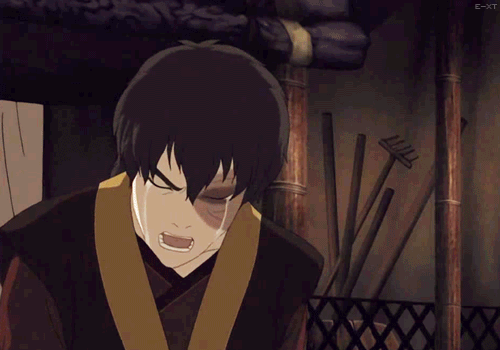
Degeneration Arcs:
The absolute best degeneration arc I’ve ever seen is Slaine from Aldnoah.zero, with Michael Corleone from the Godfather as a close second. I’ll be using these guys to illustrate my points. (Side Note: I adore degeneration, if you know of any good ones, let me know.)
1. Source of Degeneration is a Virtue Taken to Extremes. No one starts out as a bad person; there has to be some kind of source for future downfall, one that can be relatable to a certain point before crossing a line into villainousness. In Aldnoah.zero, everything Slaine does is out of loyalty to the princess who saved his life. He kills to protect her, he wages war in her name. Which, you know, would be fine: except she didn’t ask him to do that. The bad choices were still entirely his, built from his too-extreme loyalty.
2. Motivation is Personal. A character needs a goal to motivate their actions - we all know that. But downfalls rarely happen because of a vague cause off in the distance. Causes are hero stuff. Villains take things personally. This is the call-to-action of failure and should connect to the extreme value mentioned before. The most common motivation for degeneration is revenge. Season 2 of Aldnoah.zero shows an epic personal fight between Slaine and the protagonist, Inaho (Side note: an amazing part of the series is that Inaho and Slaine have the same goals and motivations, to protect the princess and take revenge, and this beautiful tension arises from the fact that they go about it differently. Man, I need to rewatch this show). The same is true of Michael Corleone! He’s willing to kill two people and go into hiding because his father was shot. That’s another point: specific motivation should come from their values; Michael values family above everything, just like Slaine values the princess.
3. The Environment Encourages Their Bad Behavior. It’s really hard to have a downward character arc when surrounded by friends and family telling you to do the right thing. But both Slaine and Michael are in the middle of an all-out war. Murder and plotting are all around, are excused and even rewarded, and are valuable to the other characters.
4. Badness Comes Easily. As mentioned before, it’s a character’s values taken to extremes that contribute to the degeneration, and just like the redeemed has goodness in them, a degenerate should be somewhat suited to degeneration, in terms of personality or intelligence. Artemis Fowl is a complicated character with many different arcs, but when he does bad things, it’s because his intelligence makes scheming a simple task for him. When it comes down to it, even though it’s against Michael’s values and he wants the family business to go straight, he’s really good at being the Don because he has intelligence, patience, a bad temper, and excellent self-control. Degeneration should still be an up and down struggle, but it should come much more easily than redemption.
5. Consequences and Success. This really depends on the story you want to tell, but usually the consequences of degeneration should be pushed towards the end of the arc where they finally culminate in complete destruction. This is because constant punishment or failure will prevent future negative actions. If you’re burned, you’re not going to touch the stove again. But you can gradually raise the temperature without noticing until you’re cooked. Slaine is actually winning the war for a long time - he becomes more powerful, more respected, and more successful - until he’s defeated, loses everything, and spends the rest of his life in prison. Degeneration should ironically have positive results…until suddenly it doesn’t, and a character has lost everything, whether they admit they were wrong or not.
6. Suffering. A lack of immediate negative consequences for actions does not eliminate suffering. In fact, suffering is the momentum of degeneration. It can be a force that keeps them on the wrong path. Slaine endures torture to protect his princess, and later he kills his father figure. Michael finds out his brother betrayed him, and later his wife leaves him. The interesting thing here is that they suffer without failing at their greater goal. Another thing is the mix of forced suffering and chosen suffering. They didn’t ask to be tortured or betrayed, but Slaine pulled the trigger himself, and Michael knew his wife was unhappy.
7. Remorse. This again depends on the story, but regret (if not repentance) concludes a degeneration arc, and it is oh so juicy. They don’t have to regret what they did, but they should at least regret that it didn’t work. If a character does not realize they were wrong or does not acknowledge they have failed in some way, then their arc, at least from their perception, never degenerated at all. Just look at this last glimpse we have of Slaine and tell me the pain in his eyes is not so satisfying you can’t even.
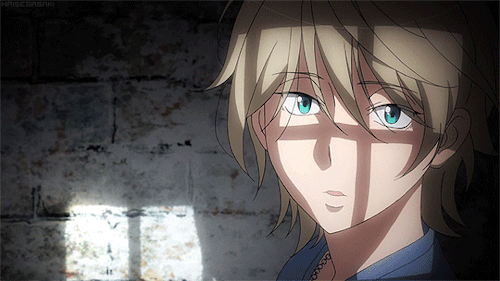
That’s it! Bye!
3K notes
·
View notes
Text
“catra’s redemption is bad because she needed adora”
you need other people in order to be a better person.
the reason why this is often misunderstood is because, at some level, we all believe you should do good things for the sake of being a good person. this simple definition is flawed, not everyone does good just for the sake of it but it doesn’t make them bad people. if we applied this definition to the show then the only good people would arguably be adora and bow which we know is not true. for example, scorpia’s motives for doing good is rooted in her love for her friends, she joins the rebellion not because it was the morally right thing to do but to save entrapta.
another reason it is misunderstood is because of the constant comparisons to zuko. a redemption arc often falls on a spectrum of dependency-independency and since zuko’s redemption largely relied on introspection it has created this misconception that you can simply reflect on your actions and change for the better. redemption is a lot more complex than that and often requires a combination of third party intervention and personal reflection. the level of intervention and introspection needed has to be contextualised to fit a character (that’s why zuko and catra’s arcs are so different). but even zuko needed someone (iroh) in order to help him be a better person. and if you’re going to compare arcs, catra’s redemption is way more similar to someone like eleanor shellstrop’s from the good place. eleanor is a deeply selfish person who was traumatised from childhood neglect and this manifested into destructive behaviours, an unwillingness to be vulnerable and an inclination to push away anyone who tried to get close to her. eleanor becomes a good person with the intervention of chidi, an ethics professor who literally teaches her how to be a good person. eleanor is able to unlearn years of selfish behaviour but she needed her love for chidi in order to do that. the good place explicitly frames this as good, in fact, the running theme of the show is that you become a better person through your connections with other people.
now yes, this does sound like “catra needed adora to fix her” or that she was codependent but you can need people in a way that is still healthy. adora sticks by catra through her bad decisions. but she doesn’t fix her. she simply helps catra be better, sounds similar but there’s a big difference. this is an example of interdependence rather than codependece. if adora “fixed” catra it implies that catra has no autonomy in her redemption which isn’t true. when catra refuses to face the people she hurt, adora gives her an out. adora doesn’t force catra to stay, she doesn’t fix her. catra realises she’s in the wrong and of her own accord and desire to stay by adora, she makes up for it and meets adora halfway.
so yes, catra needed adora for her redemption. it’s okay to be a good person even if your motives are rooted in your connections to other people, not everyone does good for the sake of it.
3K notes
·
View notes
Text
Redemption arcs and Christian hegemony in fandom
Note: I originally had another half-written post delving into this topic. Then Tumblr went, “LOL! Fuck you!” and ate it. This is my second attempt.
As a fan of many characters deemed villains in their respective stories, redemption arcs are often a topic of discussion. Does this or that character deserve redemption? What makes for a satisfying redemption arc? Which redemption arcs work or don’t work?
However, it’s rare for me to come across a conversation that examines the concept of a redemption arc itself, let alone the forces that shape our understanding of what redemption means and how it works.
With that in mind, I’m going to see what I can do to crack open the assumptions behind redemption narratives and see what interesting alternatives present themselves.
Keep reading
8K notes
·
View notes
Text
Many times it is not the lack of love that breaks couples apart but rather a lack of trust. I loved someone so very much but I could never trust him to keep his word, not in the small things like remembering to buy the water jug at the supermarket, not in the big ones like remembering to pay the utility bill. He promised so many things, that he would help out in the house, that he would help me pay the bills, that he would be responsible, that he wouldn't drink as much, but he broke each and every one. In the end, I didn't believe him anymore....more importantly, I didn't believe IN HIM, and I lost all respect for him. Since I just couldn't live with a person I could not respect or trust, and even though I loved him, in the end, it was a goodbye.
So why am I telling you this? So you will see how important it is to be faithful in the small as well as the big things. If you promise something to your significant other, KEEP YOUR PROMISES. Love is the pillar of any relationship, but so is trust and respect. Weaken one pillar, let it fall and the whole thing crumbles inevitably. Yes, love is important in a relationship but love is not everything.
e.v.e.
137 notes
·
View notes
Text
something about horror as a genre is very inherently similar to romance, but it’s differently romantic. it’s like if romance could be compared to a rabbit, then horror is a hare. a hare is the same shape-ish as a rabbit, but it’s different; it’s upturned and eerie and comes at you from a sideways angle.
i think this connection between the two genres is the presence of love. love as a concept. romance is the genre that beautifies love, and horror is the genre that explores love in ways that aren’t beautiful. horror is the monstrosity of love gone sour, or the absence of love, or the emotions that the intensity of love and pain birth. slasher horror is monstrous obsession, while existential horror always has a narrative that makes you rethink what love means, what being human means. just like romance.
sorry if this makes no sense but i’m willing to talk about this if others discourse politely!
16K notes
·
View notes
Note
Manacled question: So obviously a big theme of this story is the idea of using light and dark magic and the problems associated with relying too much on love and light. Is this something you personally believe? Did you not agree with J.K. Rowling's theme of "love conquers all"? And also wouldn't it be fair to say that love did still prove to win because if it hadn't been for Draco and Hermione's love for each other neither of them would be alive?
I just think there’s a naivety to regarding love as being something that is wholly pure.
People get so frustrated in Manacled at the idea that the Order would refuse to use the Dark Arts after 5 years of slowly losing the war, as if in canon they didn't solely use defense magic during the first Wizarding War that lasted 10 years, during which they’d also been steadily losing up until the point when the Harry survived Voldemort’s Killing Curse.
I come from a religious background that always required stories to involve the moral conclusion that “the good ended happily and the bad unhappily.” And although I don’t deny that there is a psychological validity to having people believe that, the trouble is that in real life villains do not believe themselves to be villains. That’s one of my favorite things about the GoT books, is the way in which GRRM successfully manages to depict every POV character as believing they are the ones in the right and that their actions are justified. I just fucking adore that character complexity and the fact that he didn’t shy away from it. Because the thing is, there are infinitely worse things that happen in the real world than anything I wrote in Manacled, and the people who did them do not consider themselves to be evil. They have invented narratives to justify their actions, and that’s one of the most terrifying things about human nature.
That’s why one of the moments in Manacled that I’m rather partial to, was the scene in flashback 11 when Hermione calls Draco out on the fact that he thinks he’s a monster, he doesn’t rationalize himself as being good in some way for the things that he does. That is contradictory to typical human behavior. And that comes almost full circle in the epilogues when Ginny is trying to convince Hermione to leave Draco and Hermione responds:
“Love isn’t always as pretty or pure as people like to think. There’s a darkness in it sometimes. Draco and I go hand-in-hand. I made him who he is. I knew what his runes meant when I saved him. If he’s a monster, then I’m his creator. What did you think was the source of all his rage?”
I’ve always regarded Manacled as being a kind of Black Mirror version of Harry Potter. Draco is the monster that he is not because he’s like Voldemort and has never experienced love, but instead because he does know what love is. He is intensely aware of how much his mother loved him, and how much his parents loved each other. He saw it in its most desperate forms, and in its most selfish forms, and that’s part of what drives him. That’s the monstrosity of love coming full circle. Draco’s actions are driven by love, Hermione’s actions are driven by love, and Ginny’s use of the Killing Curse is the final illustration of that, the hatred and intent needed to cast a Killing Curse was borne from the intensity of her love and the resulting grief over Harry and her family’s deaths.
Love is powerful, and maybe it can hypothetically conquer all, but that does not make it inherently good or pure.
103 notes
·
View notes
Note
Hey! I finished reading manacled for the first time yesterday and firstly when I tell you I sobbed. It’s so well written and planned. I can tell you put so much effort into it and I want to thank you for taking the time and work. It’s such a brilliant story with important themes that I feel aren’t done justice like you did. I wanted to ask how you came up with the final line ‘She was a non-active member of the order of the Phoenix’? It’s so beautifully tragic. It broke me and had such an impact
The idea of ending the story with the line, “She was a non-active member of the Order of the Phoenix and did not fight,” was something that occurred to me in June of 2018, which was when I was about 10 chapters into publishing Manacled. But I didn’t write it down until I got to that epilogue. I felt like I couldn't put the words down until I got there, that I had to earn it in some weird way. Which resulted in my having nightmares about being hit by a car or something and losing my memory.
I always planned for Hermione and Draco not to have their story known, that they would choose peace and safety rather than try to live through the endless battle of trying to legitimize their wartime choices. They’d already given so much of themselves to fighting for other people and for each other, I very much believed that a true happy ending to them was finally being allowed to have something good without having to constantly defend and struggle to keep it.
But the decision to end on the explicit note of Hermione’s wartime contributions being erased was something that occurred to me more gradually. Manacled isn’t supposed to be a comfortable story. I didn’t want people to ever be comfortable with it. I wanted readers to be angry at the end of it, even if that meant that they were angry at me, because its not the kind of story that a happy ending should be allowed to paper over. There were horrible things that happened, that the characters did, that they will never fully move on from, events that have ripple effects the way that all wars do.
I’m two generations removed from WWII, but the trauma of it affected my parents, and by extension profoundly impacted my life and has informed my decisions and my parenting as a result. And compared to what happened to Draco and Hermione, what root trauma is almost nothing.
I didn't really feel like it was appropriate to end a story like Manacled like it was a wholly happy ending.
156 notes
·
View notes
Note
In manacled if Draco could cast a patronous (I’d like to think once he and Hermione escaped to the island and were content and safe he could cast one) what shape would it be? Would it be a dragon to match Hermione’s? Or would his patronous change to something representing her, like Hermione’s changed for him? I’ve been thinking about this for ages and wanted to know what you thought!
Honestly, I have trouble thinking that Manacled Draco could cast a patronus. I don’t even think that Hermione ordinarily could, her ability to create one at Sussex was very much driven by the sense of utter desperation that she felt. I don’t know that she’d ever be able to cast another one after that.
That said, I’m not sure exactly what form Draco’s patronus would take if he were able to cast one. Because Hermione’s patronus was both symbolic her love for Draco but it was also representative of the change in her. Draco was not the only dragon at that point. Hermione at Sussex was a hundred times more deadly than Draco was during his “Death Eater Catwalk” and almost everything she does there is an avalanche version of Draco’s past actions or threats: she kills every last person in Sussex, she razes an army of dementors, she slaughters her way across a battle field using many of the same techniques that Draco used when he came for her. Draco is calculating and restrained because of his amorality, whereas Hermione is righteous vengeance. So I think of Hermione’s patronus as being her love for Draco having turned her into as much of a dragon as he is.
However, I don’t think Draco would think of Hermione as a dragon. I think he has a tendency to regard her as less greedy and savage than he sees himself. She’s not a lioness, I don’t think he’d see her as having that level of bombasity, but maybe like panther or a puma?
143 notes
·
View notes
Text
Ok this wikipedia article is pissing me off so much
70K notes
·
View notes
Photo

Last one of the samples! Sample Draco with light rendering that you can get by donating to AARW on #GivingTuesday, November 27th, 2018, when Facebook will match your donation and double your contribution to a good cause
for full details see my other post
(which has also been updated with information on how to donate through Paypal on Nov. 27th if you don’t want to use Facebook)
–
Patreon | Ko-fi
1K notes
·
View notes
Photo
CURRENTLY SCREAMING!!! THE WAY THEY'RE LOOKING AT EACH OTHER, JUST AAAAAAAAAAA. YOU'RE SO TALENTED, I LOVE YOU 💓💓💓

A teaser of something I’m working on <3 Still experimenting with light and color o<-<
1K notes
·
View notes
Text

she love sleeping on him.
668 notes
·
View notes
Text
when one character brokenly says “i have nothing to offer you” and the other character looks at them with fond exasperation, because there’s nothing else they could want except the gift of their love. that shit gets me.
60K notes
·
View notes
